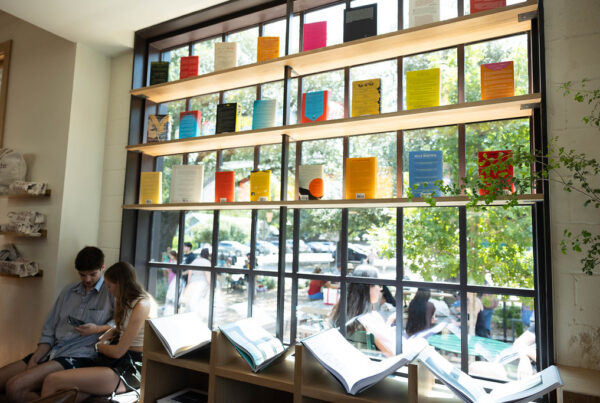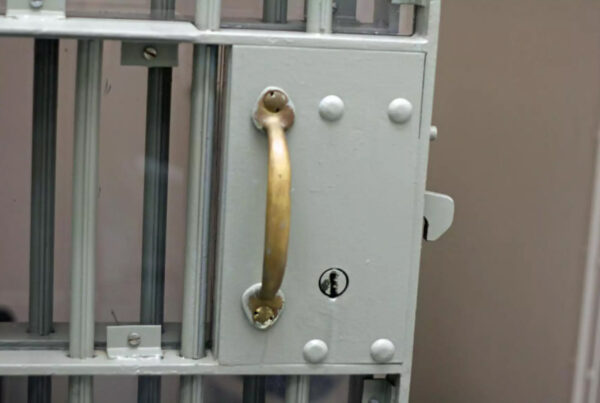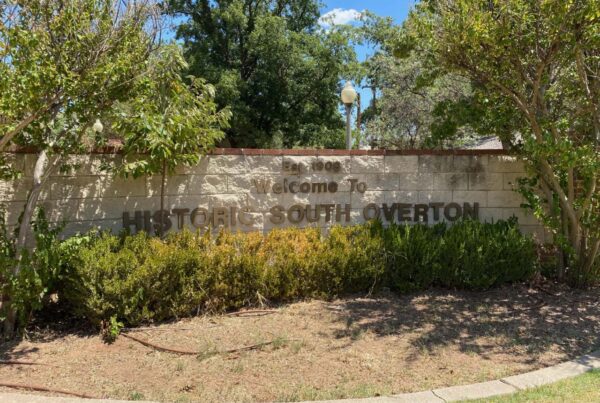From KUT:
The sun beat down blindingly on dry, dusty fields on a recent August afternoon at Isle Acre Farms. Weeks of nonstop, sweltering triple-digit temperatures and little rain, has left the field in Liberty Hill barren of the usual summertime crops.
“Well, we had squash planted, which are a nice summer crop, and, um … yeah, they kinda burned off,” Pedro Tamez, also known as “Farmer Pete,” said as he pointed toward an empty row. He and his wife, Becky, run the small, community-supported farm in western Williamson County.
Tamez said he even tried transplanting seedlings from trays into the soil, but “the heat is so brutal on them, they just burn off on the field.”
Central Texas farmers and ranchers are on the frontlines of this summer’s record-breaking heat and drought.
Ideally, Tamez said, he would have had all his summer crops planted by March or April, before the brunt of the heat. But moving to a new a tract of land in Liberty Hill made that timeline impossible.
Tamez said he’s now putting up shade cloth to help protect seedlings.
“We’re hoping once we have that in the air floating, blocking that sun, we can get down there with a cooler soil and get some greens going,” he said.
‘Cut our losses’
Drive about 3 miles northwest along the banks of Bear Creek, and you’ll find Julie Green and her herd of Texas longhorns at Veterans Liberty Ranch.
Green and her business partner, Michelle Smith, raise the grass-fed longhorns for beef and occasionally for show.
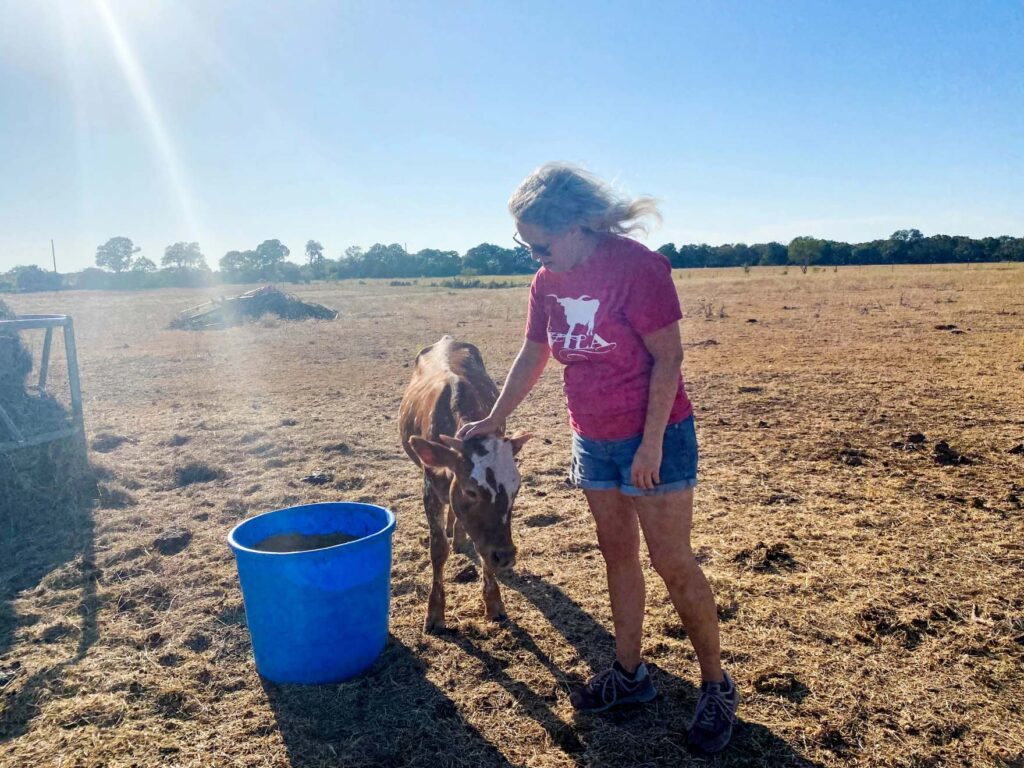
Julie Green pets a Texas longhorn calf at her ranch in Liberty Hill.
Kailey Hunt / KUT
“The reason that we raise Texas longhorns is they are pretty heat-resistant and drought tolerant,” Green said.
But this summer’s heat has been so intense it has killed off all the grass in Green’s pasture — leaving her herd without their primary food source.
Green said the problem has only worsened with the drought. Nothing — not even weeds — will grow.
“The rest of Texas is not getting any rain either, so there’s nowhere that they’re bailing hay,” she said. “And then the hay that does get cut, if anybody has anything — it’s very protein deficient. We’re still having to supplement with a lot of protein tubs [or] mineral blocks.”
As a result, Green and Smith have had to haul in hay from places like Oklahoma and Kansas — a necessary, but expensive decision that has created its own set of financial hardships.
Green said was recently forced to sell off 27 of her cows because she can’t afford to feed them.
“These were mommas with very young calves that we were holding for beef, but in a drought situation like this, you can’t raise the calves,” she said; it’s too expensive. “We couldn’t feed them long-term.”
Green said the sale will help her business in the short-term, but it also means she’ll have less beef to sell next year, and perhaps the year after that.
“It’s sad. It’s sad because you’re thinking, ‘You know, I could’ve held onto that,'” she said. “So we kinda just have to cut our losses, I guess, for a minute and just get back a hold of where we’re at.”
‘Slowed everything down’
Ron Yates, the owner of Spicewood Vineyards in southern Burnet County, said the heat forced him to push back the harvesting of 50 tons of grapes.
“We watch it and we take measurements as it’s getting riper, and … the heat has just slowed everything down,” he said.
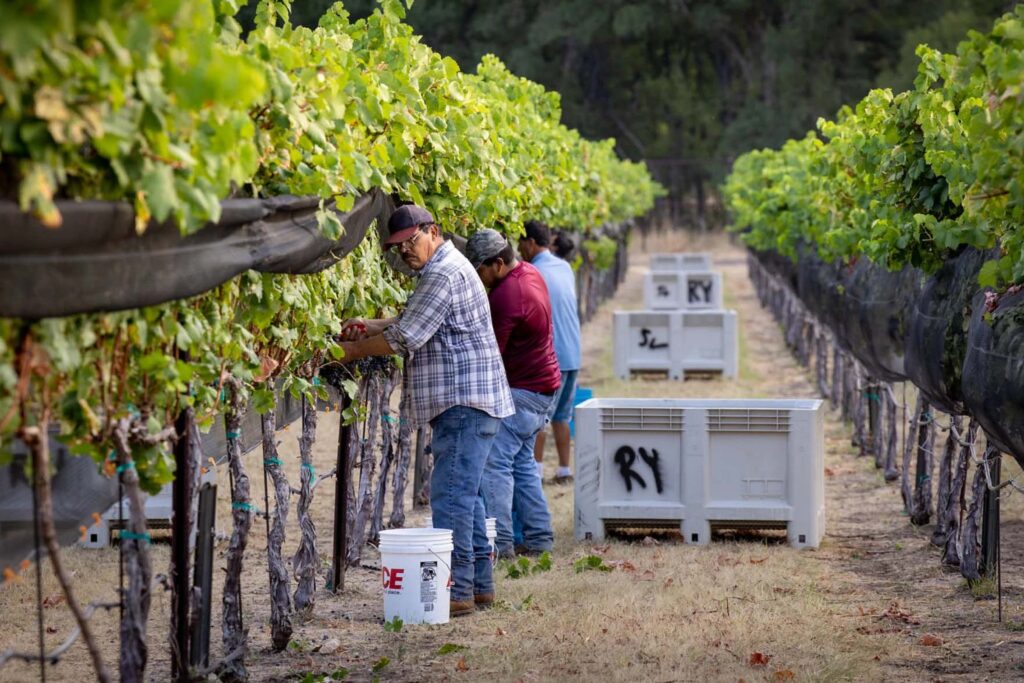
Workers harvest grapes at Spicewood Vineyards during the early morning Aug. 8.
Renee Dominguez / KUT
Yates said deciding when to harvest grapes is the “single most important decision you can make while wine-making.” He said you want to make sure each piece of fruit has time to develop sugar and ripen. But if you wait too long, the grapes will burn and begin to dry out and raisin.
“Some of that, of course, we like,” he said. “A little flavor definition, a little complexity, helps build a little more sugar, but if you get that whole batch of wine that tastes like raisins … it’s not gonna be your favorite thing in the world.”
Yates said he won’t know for sure how the summer heat affected the wine until next year. But he and the others KUT talked to don’t think this summer is unique. They’re expecting to have to fight the heat again next year.




